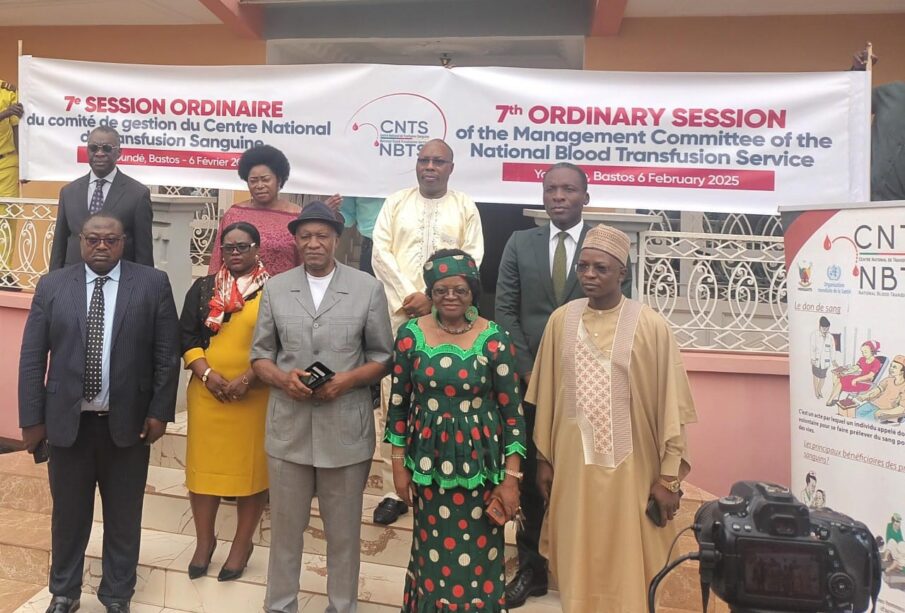National Blood Transfusion Center: Advocacy for adequate funding

Family photo after the work.
The National Blood Transfusion Center (CNTS) of Cameroon is going through a difficult period, with financial challenges that compromise its ability to fully fulfill its mission. During the seventh ordinary session of the Management Committee, members stressed the importance of having an adequate budget to carry out the essential activities of the institution, including the promotion of blood donation, monitoring of blood banks and the safety of blood products.
Despite the efforts made and the support of international partners, the budget allocated to the CNTS remains insufficient. Indeed, the budget for the year 2024 amounts to only 900 million CFA francs, a sum considered too low to cover the expenses necessary for the proper functioning of the institution. The CNTS, which depends on these funds to ensure the quality and safety of blood products, is facing severe financial constraints. This limited budget prevents the institution from carrying out important activities such as hemovigilance and the promotion of ethical and voluntary blood donation.
The Director General of the National Blood Transfusion Center.
stressed that, although the support of the “Solidarity Fund for Innovative Projects – Rapides” (FSPI-R) has made it possible to ensure minimum services, the efforts are far from sufficient in the face of the country’s growing needs. The body, as the sole operator of blood transfusion in Cameroon, must be able to guarantee the availability of safe and accessible blood for the entire population. But this requires substantial financial resources.
“It is imperative that our supervisory authorities understand the urgency of the situation,” said the Director General of the CNTS. “The current budget does not allow the CNTS to play its key role in the country’s blood security. We need resources that match the mission entrusted to us by the Head of State.”
Comparisons with other African countries are telling. Benin, with a population of 13 million, has an operating budget of over 5 billion CFA francs for its CNTS. Côte d’Ivoire and Senegal, for their part, allocate 15 billion and 10 billion CFA francs respectively to their blood transfusion centers. On the other hand, Cameroon, with nearly 35 million inhabitants, finds itself with a budget that is largely insufficient to meet health safety requirements.
The National Blood Transfusion Center is therefore calling for increased funding to not only monitor the country’s 479 blood banks, but also conduct awareness-raising activities and guarantee blood products that meet international standards. At a time when demand for blood is increasing and public health challenges are multiplying, it is urgent that the government and financial partners provide increased support to the CNTS.
To read also: Foreign aid cut, conflicts persist: Africa faces an unprecedented health emergency
The message is clear: for Cameroon to have access to safe, reliable and affordable blood, it is crucial that the authorities put in place a budget that is up to the challenge. The CNTS, a central player in the country’s health security, will only be able to fulfill its mission if the necessary financial resources are granted. The health and well-being of the entire Cameroonian population depends on it.
In this fight for accessible and safe blood, the CNTS is counting on the collaboration of all stakeholders, from the government to international partners, to meet this major challenge.
Let us recall that all this information was made public at the opening of the work of the 7th ordinary session of the management committee of the National Blood Transfusion Center, chaired by Professor Tetanye Ekoe,Chairman of the Management Committee of the National Blood Transfusion Center.
Mireille Siapje















